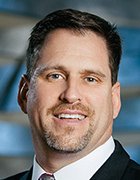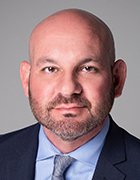
Have a nice day - stock.adobe.c
With no federal COVID-19 liability shield, states go it alone
Congress has not enacted a COVID-19 liability shield, leaving states to craft their own policies. But the risk to employers from these lawsuits is still muddy.
The $900 billion stimulus relief bill that Congress approved Sunday did not include a COVID-19 liability shield. Republicans pushed for it, Democrats opposed it, and the issue is likely dead.
Litigation risks for many employers, however, may not be that great. Proving that an infection originated in the workplace will be difficult, and businesses can protect themselves if they follow federal and state guidelines for ensuring workplace safety, employment attorneys said.
A COVID-19 liability shield would limit the risk of a lawsuit from someone claiming to have become infected at a workplace, retailer or some other third party. Broadly, proponents argue that the lawsuits could potentially crush a business, while opponents believe a shield may encourage reckless behavior. However, just how much of a threat the lawsuits pose is up for debate.
 Mark Kruthers
Mark Kruthers
"The liability risk exists, but I'm not entirely certain it's not a little overblown," said Mark Kruthers, an employment attorney at Fennemore Craig PC. The employee bringing the complaint would have to prove that they caught the virus in the workplace, "and that's darn near impossible," he said.
 Michael Elkins
Michael Elkins
Employers should treat the risk of a COVID-19 lawsuit the same way they handle any other litigation threat, and that's not to be afraid of it, said Michael Elkins, a labor and employment attorney and founder of MLE Law in Fort Lauderdale, Fla.
"If you have the right policy, if you talk to your employees and create a good culture, and, in this case, follow CDC guidelines, I think you're going to limit exposure for these types of claims," Elkins said.
States are acting on their own
According to data collected by Seyfarth Shaw LLP, at least 16 states have adopted COVID-19 liability shields, and at least eight others are considering it. Among those with shields are Alabama, Arkansas, Georgia, Kansas, Idaho, Iowa, Louisiana, Michigan, Mississippi, Nevada, North Carolina, Ohio, Oklahoma, Tennessee, Utah and Wyoming.
 Pamela Moore
Pamela Moore
A federal COVID-19 liability shield would create "one uniform standard" but wouldn't prevent states from providing broader protections for employers, although not less than any federal standard, said Pamela Moore, a partner in McCarter & English's employment law practice.
Right now, the state laws vary and depend on the standards implemented by the states. But firms that "intentionally or recklessly or willfully expose somebody to COVID-19 and not take precautions, you probably would not be entitled to the limits on liability," Moore said.
 Harry Nelson
Harry Nelson
Georgia's COVID-19 shield states, for instance, that someone can sue for "gross negligence," meaning the operators of the business "were reckless and departed in an extreme way from what the standard was," said Harry Nelson, a healthcare attorney and founder and managing partner of Nelson Hardiman LLP.
Nelson supports a middle ground on shields and believes they can be structured in a way that makes it easier for businesses to reopen, but also "still ensure [they are] not a get-out-of-jail-free card."






